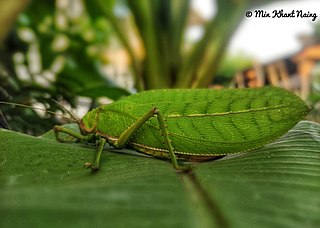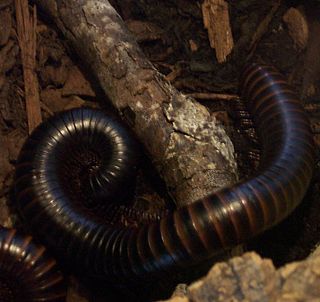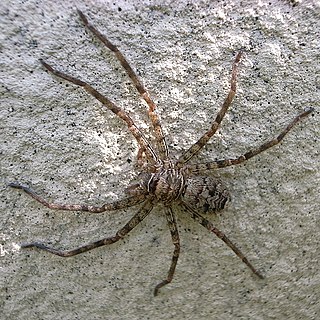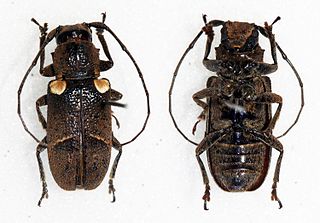
Corinnidae is a family of araneomorph spiders, sometimes called corinnid sac spiders. The family, like other "clubionoid" families, has a confusing taxonomic history. Once it was a part of the large catch-all taxon Clubionidae, now very much smaller. The original members of the family are apparently similar only in that they have eight eyes arranged in two rows, conical anterior spinnerets that touch and are generally wandering predators that build silken retreats, or sacs, usually on plant terminals, between leaves, under bark or under rocks.

Plexippus is a genus of jumping spiders that was first described by Carl Ludwig Koch in 1846. It is considered a senior synonym of Hissarinus and Apamamia.

Simaetha is a genus of Australasian jumping spiders that was first described by Tamerlan Thorell in 1881. They resemble members of Simaethula and Stertinius.

The Thyrididae comprise the family of picture-winged leaf moths. They are the only family in the superfamily Thyridoidea, which sometimes has been included in the Pyraloidea, but this isn't supported by cladistic analysis.

Ferdinand Anton Franz Karsch was a German arachnologist, entomologist and anthropologist. He also wrote on human and animal sexual diversity with his mother's maiden name included as FerdinandKarsch-Haack from around 1905.

The subfamily Pseudophyllinae contains numerous species in the family Tettigoniidae, the katydids or bush crickets. Sometimes called "true katydids", together with the crickets of suborder Ensifera, they form part of the insect order Orthoptera which also contains grasshoppers.
Thelechoris is a genus of East African spiders in the family Ischnothelidae. It was first described by Ferdinand Karsch in 1881. As of July 2020 it contained only two species, both found in Madagascar: T. rutenbergi and T. striatipes.

The Phaneropterinae, the sickle-bearing bush crickets or leaf katydids, are a subfamily of insects within the family Tettigoniidae. Nearly 2,060 species in 85 genera throughout the world are known. They are also known as false katydids or round-headed katydids.

Sevenia, commonly called tree nymphs, is a genus of forest butterflies in the family Nymphalidae that, as larvae, feed on plants of the family Euphorbiaceae. There are fourteen species from continental Africa and two species from Madagascar. See Idea for the genus of Southeast Asian tree nymphs.

Spirostreptus is a genus of giant millipedes of the family Spirostreptidae. It contains the following species:

Sinopoda forcipata is a species of spider in the family Sparassidae. It was described by Ferdinand Karsch in 1881.

Stromatopelma is a genus of African tarantulas that was first described by Ferdinand Anton Franz Karsch in 1881. They are renowned for their potent venom that uses stromatoxin peptides to induce medically significant effects.

Julus is a genus of millipedes in the family Julidae, containing the following species:

Prosoplus is a genus of longhorn beetles of the subfamily Lamiinae, containing the following species:

Acroaspis is a genus of South Pacific orb-weaver spiders first described by Ferdinand Karsch in 1878.
Gnathonarium is a genus of dwarf spiders that was first described by Ferdinand Anton Franz Karsch in 1881.













